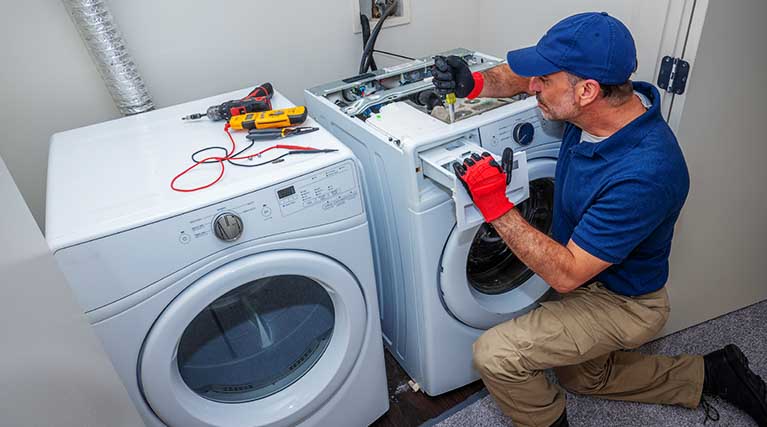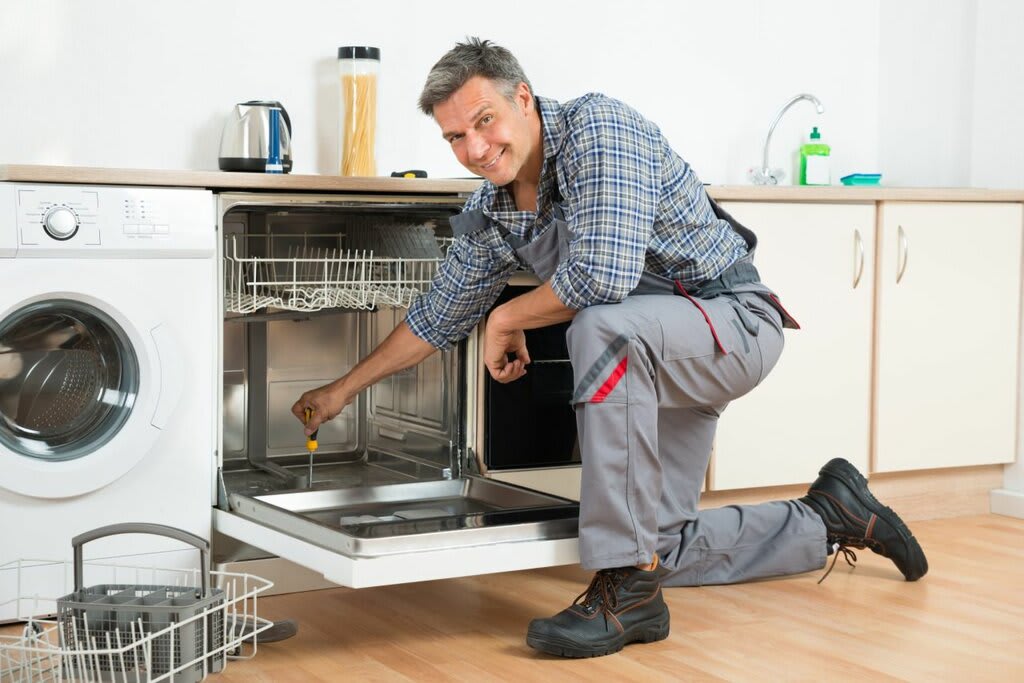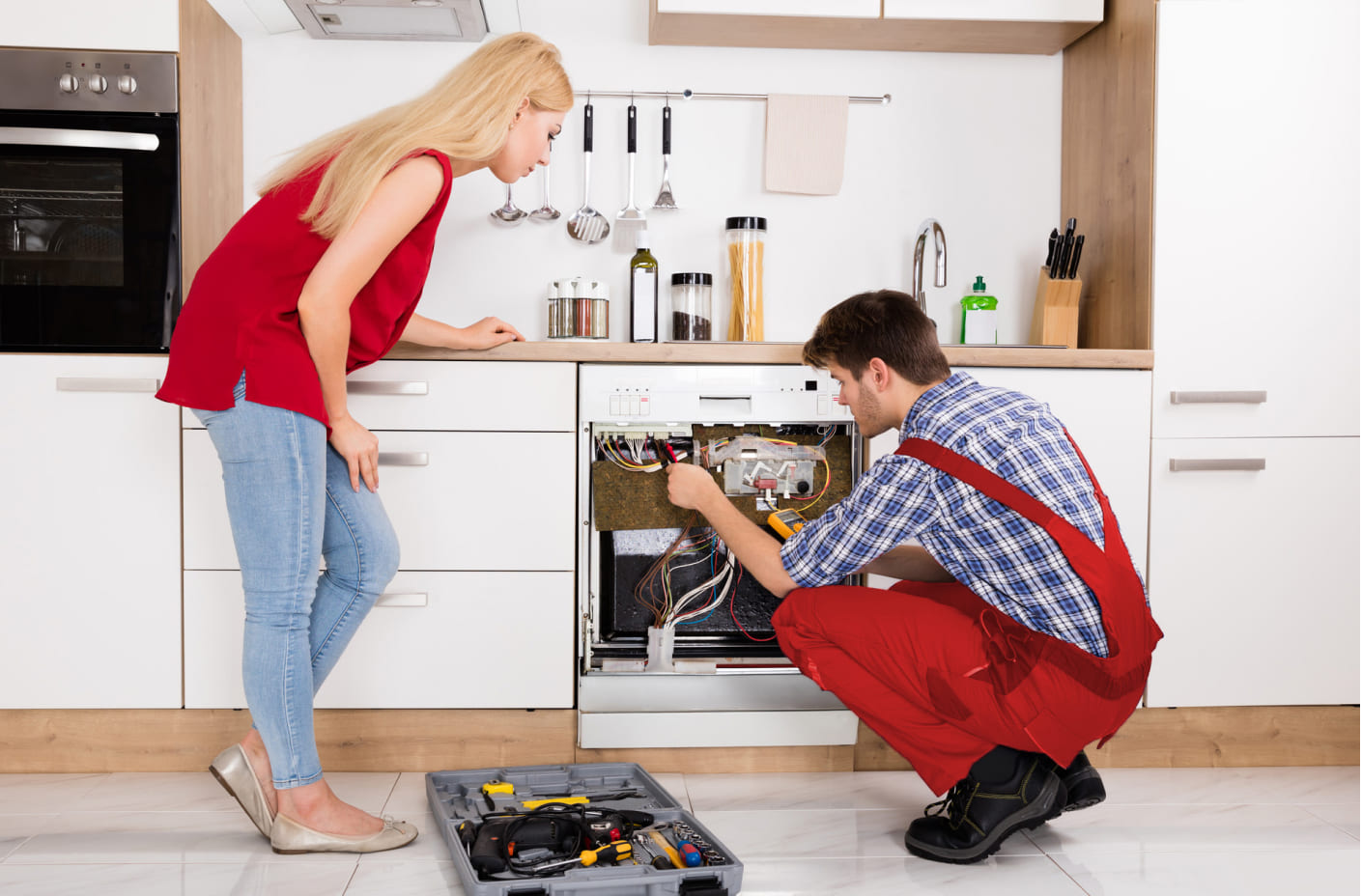Pros, Cons & Best Practices – Dependable Refrigeration & Appliance Repair Service Washing Machine Repair
Pros, Cons & Best Practices – Dependable Refrigeration & Appliance Repair Service Washing Machine Repair
Blog Article
The Ultimate Overview to Understanding Device Repair Work in the house
When your fridge stops cooling down or your stove rejects to warm, it can really feel frustrating. Understanding appliance repair service in the house can save you time and cash. You'll learn to acknowledge symptoms, utilize crucial devices, and adhere to a methodical troubleshooting process. But before you begin, there are important safety and security preventative measures you require to consider. What are one of the most common issues, and just how can you repair them? Let's check out the fundamentals.
Typical Device Problems and Their Signs and symptoms
When your devices start breaking down, it's necessary to identify the signs early. Disregarding them can cause bigger concerns and expensive repair services. As an example, if your refrigerator isn't cooling effectively, you could observe cozy areas or condensation developing. This can show a falling short compressor or a blocked vent.Your dishwasher might reveal problems via dirty dishes or unusual sounds during cycles. If you listen to grinding or clanking, it's time to investigate.A cleaning device that will not spin or drain can leave you with soaked laundry, recommending a stopped up drain or a malfunctioning pump.Lastly, if your stove's temperature level seems off or it takes for life to pre-heat, you could be handling a malfunctioning thermostat. By staying sharp to these symptoms, you can resolve problems before they rise into major repair work.
Important Tools for Device Repair Work
When you're taking on device fixings at home, having the right devices is essential. Fundamental hand tools like screwdrivers and pliers will help you disassemble and repair different home appliances, while electric testing gadgets ensure you're functioning securely with electrical wiring. Let's discuss what you need to start on your fixing journey.
Standard Hand Devices
Having the right devices is vital for efficient appliance repair in the house. Begin with a dependable screwdriver set, consisting of both flathead and Phillips types, as screws prevail in device setting up. Pliers are also essential; they aid with gripping, twisting, and reducing wires or tiny parts. A set of needle-nose pliers can reach difficult situations easily. You'll require a good adjustable wrench for tightening or loosening nuts and screws. An utility knife is handy for puncturing packaging or insulation. Don't fail to remember a strong workbench or surface area to safely organize your devices and components. With these standard hand tools, you'll be well-prepared to deal with most appliance repair work that come your means.
Electric Screening Devices
Along with standard hand devices, electrical testing tools play a vital role in device repair service. These devices assist you detect electrical problems and guarantee home appliances operate safely. A multimeter is vital; it determines voltage, present, and resistance, enabling you to identify issues rapidly. A non-contact voltage tester is an additional essential, letting you spot real-time cords without making straight call, boosting your safety. Clamp meters are excellent for gauging current flow in cords without disconnecting them, saving you time and effort. In addition, circuit testers can swiftly examine if outlets are functioning appropriately. By utilizing these devices, you'll enhance your troubleshooting process and improve your repair work skills, making device maintenance a lot easier.
Step-by-Step Overview to Diagnosing Home Appliance Issues
When your appliance breaks down, it can be aggravating, but identifying the problem doesn't need to be overwhelming. You'll discover to identify common issues and use reliable repairing techniques. Let's go through the steps to get your appliance back in working order.
Usual Home Appliance Issues

Troubleshooting Strategies Explained

Fixing Significant Kitchen Area Devices: A Closer Look
Have you ever before wondered how to deal with typical issues with your kitchen area appliances? Repairing major kitchen area appliances like fridges, stoves, and dishwashers can be much easier than you think. Start by recognizing the issue-- whether it's a fridge not cooling down hometown appliance repair or a stove that won't heat up. Commonly, a basic reset or checking the source of power can solve the issue.For fridges, clean the condenser coils and examine the door seals. If your oven's not home heating, inspect the home heating aspect and thermostat. Dish washers may simply need a tidy filter or a reset to get them back at work. Constantly unplug the home appliance before diving right into repairs to assure your safety.Don' t fail to remember to seek advice from the user guidebook for certain troubleshooting tips associated to your design. With a little patience and the right devices, you can with confidence tackle device repair work and save cash while doing so!

Repairing Washing Equipments: Tips and Techniques
When your washing devices begin acting up, it can feel overwhelming, but fixing them does not need to be an inconvenience. Beginning by inspecting the power supply. Validate the home appliance is connected in and the electrical outlet is operating. Next, inspect the door or lid switch; a damaged switch can stop the equipment from operating.For washing machines, if it's not rotating, check for unbalanced lots. Redistributing the clothing could solve the problem. If your clothes dryer isn't home heating, clean the lint filter and examine the vent for blockages.Listen for unusual sounds; they can indicate a trouble. If your appliance is dripping, check the tubes for fractures or loose connections. Paper any kind of error codes shown on electronic displays, as they can guide you in determining the problem. Ultimately, seek advice from the customer handbook for specific troubleshooting suggestions connected to your model.
Security Precautions to Take Throughout Fixes
Prior to you begin any appliance repairs, it's vital to focus on safety to stop accidents or injuries. First, unplug the home appliance or switch off the circuit breaker to assure no power reaches it while you work. Usage shielded tools to minimize the threat of electrical shock. Put on safety and security goggles and handwear covers to secure on your own from sharp sides or debris (Maytag Washing machine repair Dependable Refrigeration & Appliance Repair Service).Make certain your workspace is clean and well-lit, so you can see what you're doing. Keep youngsters and animals away from the location to stay clear of distractions and possible hazards. If you're taking care of gas devices, be extra careful; check for leakages prior to proceeding.Take your time, and don't rush via fixings. If you feel uncertain regarding any kind of step, it's better to stop and research study than to guess. Following these safety measures will aid create a much safer environment for your do it yourself device fixing job
When to Call a Professional for Help
Exactly how do you recognize if it's time to contact a specialist for home appliance repair work? If you have actually tried basic troubleshooting without success, it's a clear sign. If your home appliance still will not start or shows uncommon sounds after resetting it, don't wait to seek specialist help.When you discover leakages, smoke, or burning scents, prioritize safety and call a professional quickly. These problems can bring about more significant damages or position dangers to your home.Also, if your appliance is under service warranty, calling a professional is typically the very best path. They can ensure that repair services won't nullify your guarantee, saving you money in the lengthy run.Finally, if you're uncertain or unpleasant with intricate fixings, it's smart to leave it to the professionals. Keep in mind, tackling difficult concerns without the right expertise can cause pricey errors. Depend on a professional when doubtful!
Often Asked Inquiries
Exactly How Can I Prevent Home Appliance Issues in the Future?
To stop appliance troubles in the future, you must perform normal maintenance, look for damage, clean filters, and stay clear of overloading. Staying positive will certainly assist prolong their life click expectancy and keep them running efficiently.
What Are the Many Typical Do It Yourself Home Appliance Repair Work Mistakes?
You may forget safety and security precautions, skip repairing actions, or utilize incorrect tools when trying do it anonymous yourself device fixings. Rushing the procedure or overlooking producer guidelines can lead to even more considerable concerns and costly errors. Stay client and informed!
How Do I Know if a Part Demands Replacement?
You can tell if a component needs replacement by looking for uncommon noises, leakages, or inconsistent efficiency. If the appliance has a hard time to operate correctly or shows noticeable damage, it's likely time for a replacement.
Can I Use Generic Components for Device Repair Works?
Yes, you can use generic components for device fixings, yet identify they're suitable - Dependable Refrigeration & Appliance Repair Service Dryer repair near me. Generic parts may conserve you money, but they can influence performance or longevity, so consider your alternatives very carefully prior to making a decision
What Guarantees Cover Home Appliance Fixes?
A lot of device guarantees cover repair work for producing issues, however they often exclude damages from misuse. Examine your guarantee terms carefully, as some could need utilizing certified technicians and initial parts for protection to stay valid.
Report this page